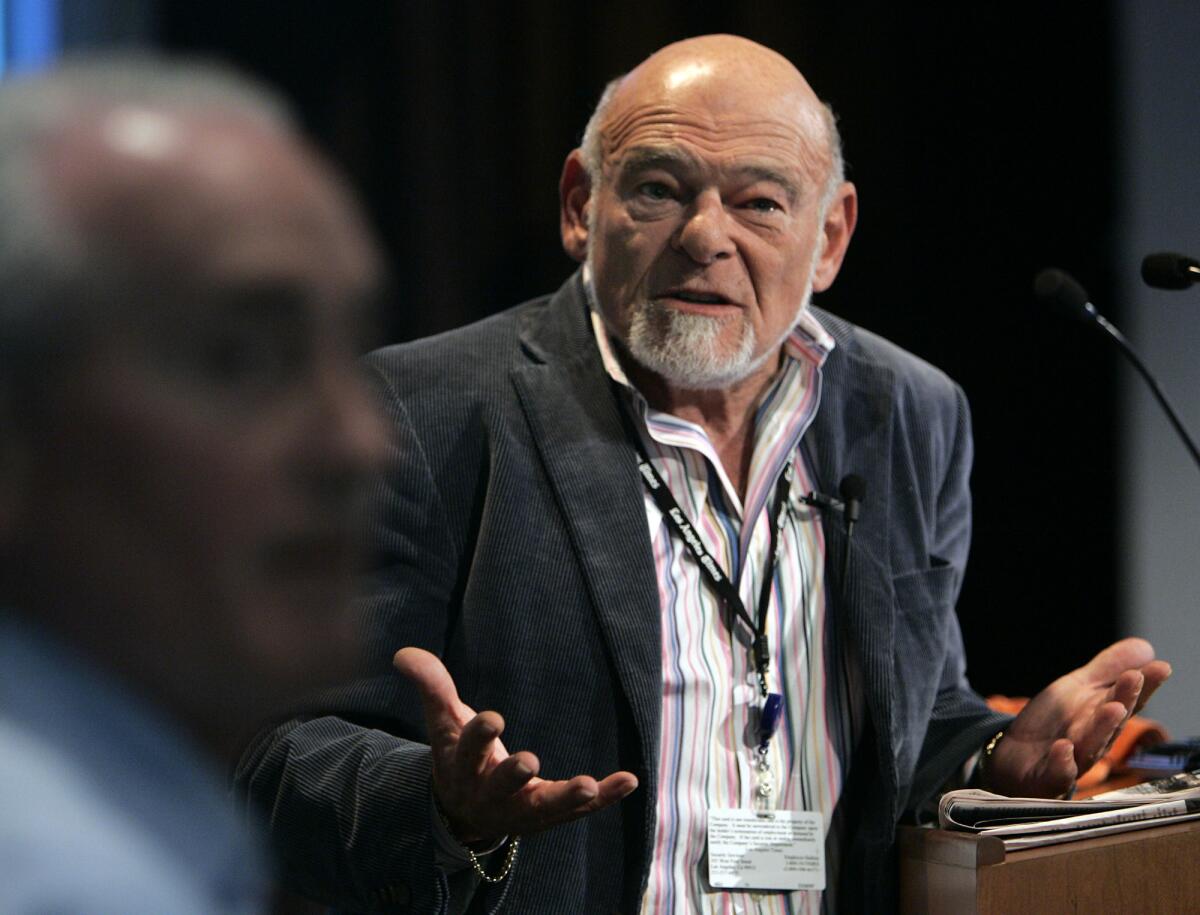A brief history of the Los Angeles Times
- Share via
Here are some key moments in the history of the Los Angeles Times.
Feb. 4, 1881
The Mirror Printing Office and Book Bindery begins publishing the six-day-a-week Los Angeles Daily Times. The four-page broadsheet costs a penny.
July 28, 1882
Col. Harrison Gray Otis, fresh from a government post in Alaska, becomes an editor of the Daily Times.
October 1884
The Times-Mirror Co. is incorporated and Otis buys the holdings of the other partners in the venture.
July 29, 1905
The Times breaks the story about water from the Owens Valley coming to Los Angeles: “Titanic Project to Give City a River.”
Oct. 10, 1909
The first news story appears about making motion pictures in Los Angeles.
Aug. 8, 1910
Hiram Johnson delivers his famous attack on Otis in a speech while campaigning for governor, condemning him as “vile, infamous, degraded and putrescence” with “senile dementia, gangrened heart and rotting brain.”
Oct. 1, 1910
The Times building on First and Broadway is blasted with dynamite by union radicals; 20 employees are killed and the building is destroyed.
July 31, 1917
Otis dies and Harry Chandler becomes the second publisher of The Times.
June 28, 1935
The historic eagle is placed atop a new Times building, at the corner of First and Spring streets.
Feb. 14, 1938
Hedda Hopper begins her Hollywood gossip column in The Times. She competes directly with Louella Parsons, whose column appears in William Randolph Hearst’s Los Angeles Examiner.
Sept. 23, 1944
Harry Chandler dies at age 80. His son, Norman Chandler, becomes the third publisher.
1955
For the first time, The Times publishes more lines of advertising than any other American newspaper, a total of 59,788,874 lines.
April 12, 1960
Norman Chandler names his son, Otis, 32, the fourth publisher of The Times, creating a schism in the family. Otis starts hiring top journalists from around the nation and opening bureaus around the world.
November 1970
Weekday circulation tops 1 million.
1979
Times foreign and domestic bureaus total 31, including one in Peking. The paper publishes more advertising than any other in the world for the 25th consecutive year.
April 14, 1980
Tom Johnson is named the fifth publisher of the Los Angeles Times. Johnson succeeded Otis Chandler, who assumed the new post of editor-in-chief of Times Mirror.
Nov. 1, 1989
The Herald Examiner announces that it will cease operation.
April 1990
Times circulation reaches an all-time high of 1,225,189 daily and 1,514,096 on Sundays, making it the largest daily metropolitan newspaper in the country.
April 17, 1995
The Times wins its 20th Pulitzer Prize in the category of local reporting of spot news for detailing the chaos and devastation of the 1994 Northridge earthquake.
November and December 1998
The Times announces cutbacks and reorganizations, eliminating about 750 positions.
March 13, 2000
The Chandlers announce an agreement to sell Times Mirror, including the Los Angeles Times, to Tribune Co., owner of the Chicago Tribune, four other daily newspapers, 22 television stations and four radio stations.
March 2004
The Times average daily circulation for the period drops to 983,727.
April 2004
The Times wins five Pulitzer prizes, the most earned by any newspaper in a single year.
April 2007
Chicago real estate magnate Sam Zell buys Tribune Co. in a highly leveraged deal.

Dec. 8, 2008
In a recession and under heavy debt, Zell’s Tribune files for bankruptcy protection.
July 13, 2012
Tribune emerges from bankruptcy controlled by hedge funds.
July 2013
Tribune announces it will split, spinning off its newspapers into a company called Tribune Publishing.
July 20, 2016
Tribune Publishing changes its name to Tronc.
Jan. 4, 2018
The Times newsroom defies Tronc leadership and votes overwhelmingly to form a union.
February 2018
Tronc announces it will sell the Los Angeles Times, the San Diego Union-Tribune and other local papers to Dr. Patrick Soon-Shiong.
More to Read
Sign up for Essential California
The most important California stories and recommendations in your inbox every morning.
You may occasionally receive promotional content from the Los Angeles Times.











